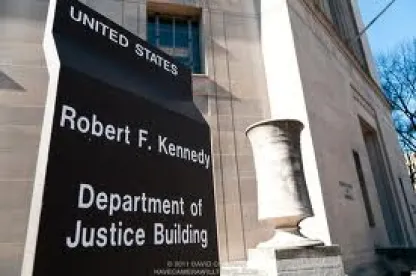On Feb. 4, the Department of Justice’s (DOJ) Fraud Section announced it will start requiring companies involved in white-collar crime investigations to “certify” that it has disclosed all information regarding individuals involved in the alleged misconduct. According to the Wall Street Journal, this corporate certification will be required before the DOJ will finalize a settlement agreement with a company. The new certification process is still in the “development” stage, “according to the department, but it could be a written certification.” While the U.S. Attorney Manual already requires companies “identify all individuals involved in the misconduct” and disclose “all facts relating to the misconduct;” it does not require a formal, written certification as a prerequisite to finalize a settlement. See U.S.A.M. § 9-28.700.
The DOJ’s announcement is part of its reinvigorated strategy to combat corporate misconduct by targeting individuals involved in the wrongdoing, as articulated in the “Yates Memo.” An “[i]nternal investigations cannot end with a conclusion of corporate misconduct, while stopping short of identifying” the individuals involved in the alleged misconduct, DOJ spokesperson Peter Carr said. To ensure companies heed the DOJ’s request, “the Fraud Section now requires that cooperating companies confirm to us that they have, in fact, turned over all non-privileged information about individuals.”
The DOJ’s new corporate certification announcement has left a number of questions unanswered that effect how corporations should act moving forward. First among them is what level of cooperation will the government deem to be enough? Will a corporation be entitled to settle if it does not identify even those individuals for which it has nominal evidence of culpable conduct? When can the corporation stop its internal investigation? What happens if it certifies completion of its investigation only to later learn of additional, potentially culpable, individuals? This level of uncertainty will increase the expense of internal investigations, at least in the short term. In-house lawyers and outside counsel will need to clearly communicate expectations during the course of an investigation. Furthermore, any company seeking to cooperate ought to consider raising such issues with the DOJ along the way.
The government’s new policies affect individual employees, as well. As stated above, the government’s policy creates a new dynamic between employees and employers. Corporations must ensure they provide “Upjohn Warnings,” and individuals working for the company being investigated should consider heeding them by engaging counsel earlier in the process. Ultimately, given the uncertainty posed by the Yates Memo, even an innocent employee may find themselves the subject of disclosure by a corporation seeking to ensure it has covered all of its bases. In such circumstances, individual employees may want seek counsel early to ensure they stay off of the corporation’s “naughty list.”
Given the uncertainty around these standards, we will continue to monitor the government’s steps moving forward in this area.




 />i
/>i

